“Reflections” by R.S. Thomas uses the central motif of mirrors—a theme recurrent in Thomas’ works—to probe the constructed nature of self-identity and the discord between our imagined selves and our true selves. “The furies are at home in the mirror; it is their address. Even the clearest water, if deep enough can drown.”
Within the opening minutes of Disco Elysium, you can slip out of a brawl between warring factions of your own booze-addled cognitive functions and drag your carcass to the bathroom. If you do so, you might be tempted to step into the home of the furies and greet them. It is the first of many opportunities for your detective, while in the throes of amnesia, to have an existential meltdown that prematurely ends the game. In Disco Elysium, identity is both flimsy and malleable, and is hewn from internal and external chaos.
Fittingly, the game opens with the first stanza of “Reflections,” a poem published in a 1995 collection titled No Truce With The Furies. ZA/UM’s detective RPG was widely known by that title up until 2018, when the team started to call it Disco Elysium.
“Changing something’s name, it’s a very uncomfortable process. The old name starts looking bad. The new name starts looking bad. People hate changes, and they especially hate such giant name changes,” writer and designer Robert Kurvitz said.
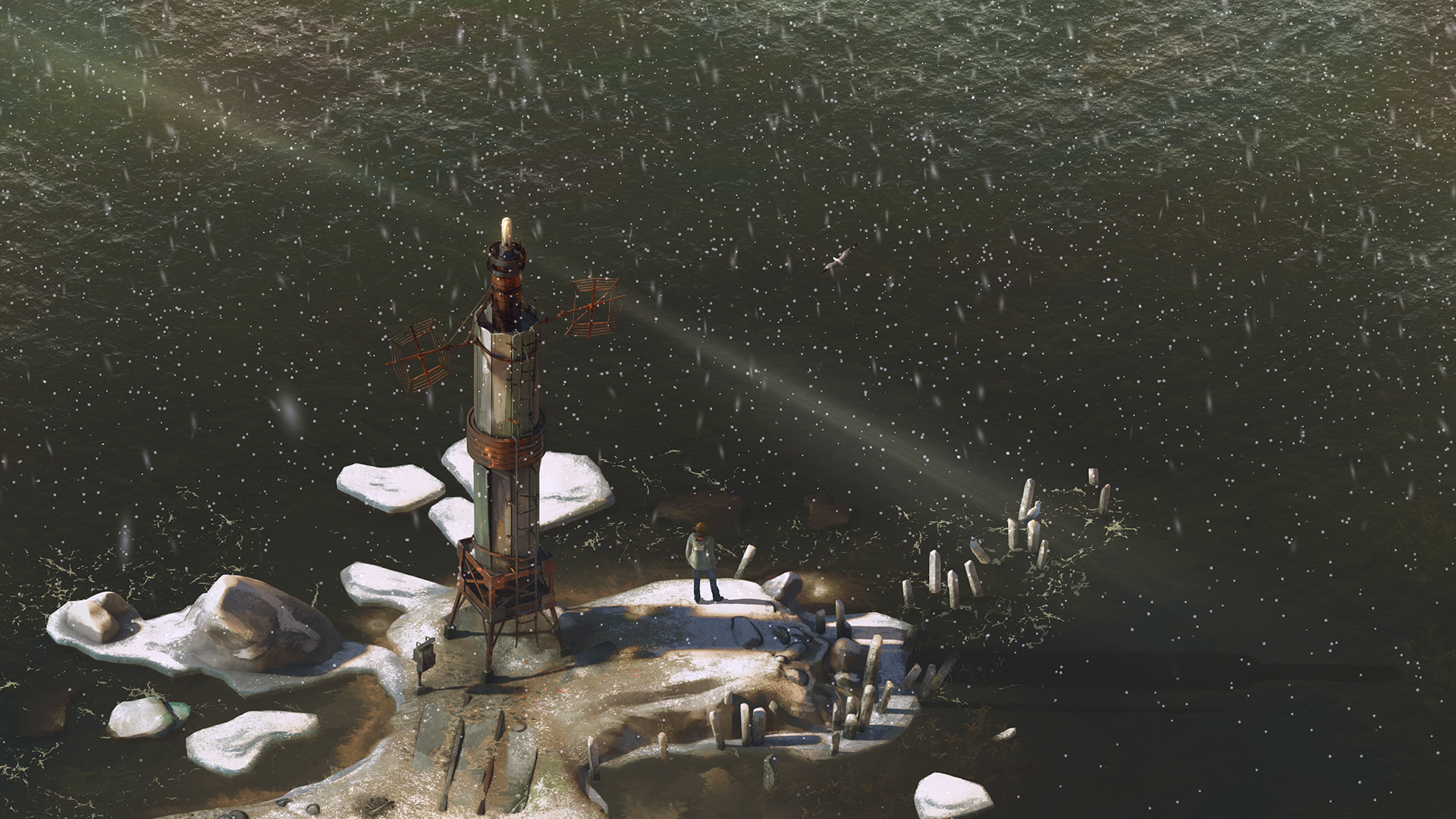
Credit: ZA/UM
The truth is that No Truce With the Furies was always intended to just be a project name. ZA/UM hadn’t ever intended to release their first game under that name, although Kurvitz said that he would like to bundle Disco Elysium and its planned sequel together as No Truce. Being that this was the first game from a small brand new studio in Estonia, the team felt they had to begin promoting their game early on before a name was even settled upon.
Disco has become a symbol representing a flash in the pan, a great supernova that burned as swiftly as it did brilliantly before flaming out. Disco Elysium‘s protagonist, with his bell bottoms and green snakeskin shoes, reflects that. Disco also means “I learn” in Latin, so the game’s title is a double entendre meaning “I learn Elysium,” with Elysium being the name of the game’s setting.
Usually we know one thing about a game before we see teasers, trailers, or even the box art: its title. By default, it plays a vital role in priming the player for what to expect, and it is their gateway into the game, but the process of how a title is decided upon is largely invisible.
Kurvitz has thought about titles a lot. He has pored over lists and given the process a huge amount of his focus and mental energy, and came into the process for his new game with a particular perspective. “I have never named a video game before. I have named a rock band. I have named a novel. I have named a movie. I’ve tried to do a lot of things to pay rent in my life. So I’ve titled a lot of things.”
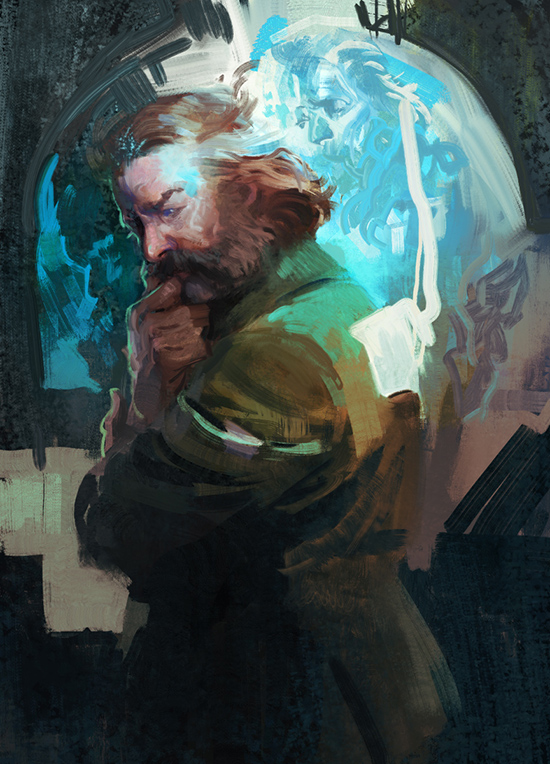
Credit: ZA/UM
Relative to books, music, theater, and even movies, games are still a nascent storytelling medium. For perspective, Tennis for Two—the 1958 tennis simulacrum that paved the way for Pong—came out just as Alfred Hitchcock was cresting a wave of cinematic excellence that helped define the visual language of films. Due to the relative adolescence of the medium along with an inclination that games are more commercially driven than other forms of media, Kurvitz believes that it is much more challenging to come up with a good title for a game than for movies or books. His novel, The Sacred and Terrible Air, is due to be translated into English at some nebulous point in the future, but he believes that a game with the same sort of flowery literary title would be hard-pressed to find success.
One of Kurvitz’s favorite songs is “Motorcycle Emptiness” by Welsh band the Manic Street Preachers. He loves the song, and spoke highly of the name with the wispy sense isolation and teenage rebelliousness it evokes. He then posed a hypothetical, “Do I want to pay 45 pounds for a game called some sort of ‘Emptiness’?”
“If I’m going to pay 60-something-dollars for a game, suddenly I want it to be like Motorcycle Completeness,” he said. If it is going to be negative, it has to be “heavy metal” or empowering and exciting in some way instead of dwelling on melancholia. Likewise, he said, “It can’t have too positive a connotation. People also dislike that because they want their games not to sound like toys… It’s very limited the language you are allowed to use to title a video game.”
Kurvitz and the rest of ZA/UM also had to consider what the name of their game would mean abroad. Would it have unforeseen negative connotations or an offensive meaning in different languages or cultures? The title should also ideally be short and punchy—three words or less, by his estimation. It has to be memorable. It has to Google well, too. If you search for a game by its title alone, and the game is not the first result kicked back to you, it might be because the title simply doesn’t Google well which will make it hard for consumers to find information out about it. These are the types of considerations ZA/UM had to process for a title totaling just two words and 13 characters.
Untitled Article Subheader: The Masquerade – Bloodlines; Seattle By Night

Credit: Panic, House House
House House’s circumstances were similar to those of ZA/UM in that the given name for its infamous goose-em-up was not always intended to be its final title. Before the game was made known to the public, House House submitted it to a festival and it was accepted. Before the festival announced its lineup, they knew they had to actually unveil the game to the world properly. Unable to settle on a name, they simply put the trailer up with the tentative-sounding non-title Untitled Goose Game, expecting to go back and give it a “real” title later on.
The seasons changed, but the title never did.
“The trailer ended up being a lot more popular than we were expecting, and suddenly the game was well-recognized under this idiosyncratic name,” House House founder Michael McMaster said.
Discussions about Untitled Goose Game were lively leading up to and after its launch, and sales have now surpassed 1 million. It would not be an unfair assumption to think the quirkiness of the title helped far more than it hurt, but it’s still impossible to say that what worked in this one instance would be a universal boon rather than a happy accident.
Florian Schwarzer, senior product manager at Paradox Interactive, has worked on titles both large and small, and every permutation in between. One of his current projects of note is an odd one. Its name is five words long with multiple punctuation marks: Vampire: The Masquerade – Bloodlines 2, a sequel to the first Bloodlines 15 years in the making. He joked that tacking on a “2” at the end was certainly a better decision than going with Vampire: The Masquerade – Bloodlines; Seattle By Night, a reference to the new setting. He also alluded to its project codename: Frasier.
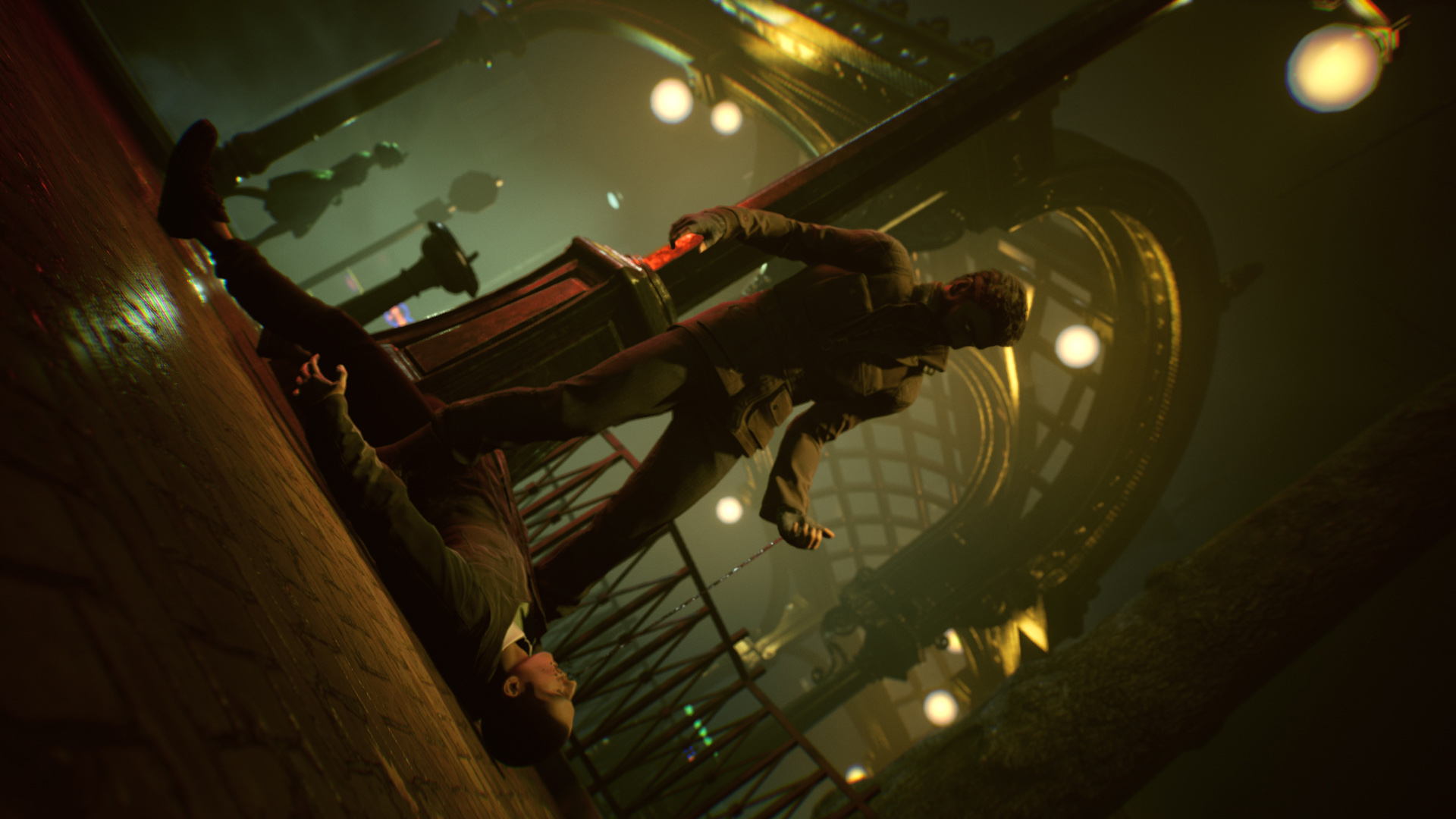
Credit: Paradox Interactive
The original Bloodlines was a niche RPG based on a 1991 tabletop game by Mark Rein-Hagen, Stewart Wieck, and Tom Dowd. It didn’t make a huge initial splash, but has since gone on to enjoy cult classic adoration from fans. Its sequel is scheduled to come out next year, developed by Hardsuit Labs and published by Paradox.
According to Schwarzer, everyone involved in one of Paradox’s projects gets to give their two cents on naming suggestions, but ultimately the decision is left up to marketing. For Bloodlines 2 they had to contend with what to do with a meaty and slightly unwieldy title.
“When we talk about how Bloodlines became this beloved classic in spite of all odds, I think it’s fair to say that the long title probably didn’t make things easier,” Schwarzer said. “We did talk internally about shortening it for the new game. Fifteen years later, it has grown its own kind of grandeur, though. The name has just become part of the legacy. Besides, we always knew that fans and media would just end up calling it Bloodlines 2.”
A rose by any other name…
“Waku waku suru” is a way of expressing excitement in Japanese. Work x Work, an RPG by FuRyu, is therefore a double entendre. Its title refers to working at a theme park, but can also sound similar to “waku waku” when read aloud, particularly in FuRyu’s home country of Japan. That play on words does not translate particularly well for a primarily English-speaking audience, John Wheeler, localization manager at XSEED, explained.
When a game is released in a foreign market, an entirely new set of challenges arises in the naming process stemming from differences in cultures, laws, and copyrights. Biohazard is known to the English-speaking world as Resident Evil because a DOS-based game beat Capcom to the punch in the U.S.
Wheeler said that XSEED uses a democratic process wherein everyone is involved in the process of naming things and pruning the list. That is how Work x Work became Heroland, the latter being a nearly direct translation of the name of the theme park featured in the game.
“It starts with trying to understand what the game is about and what the core target audience of the game is,” he said. “There’s never really one right answer and there’s always going to be people, especially if they’re familiar with the Japanese original, who are dissatisfied with that.”
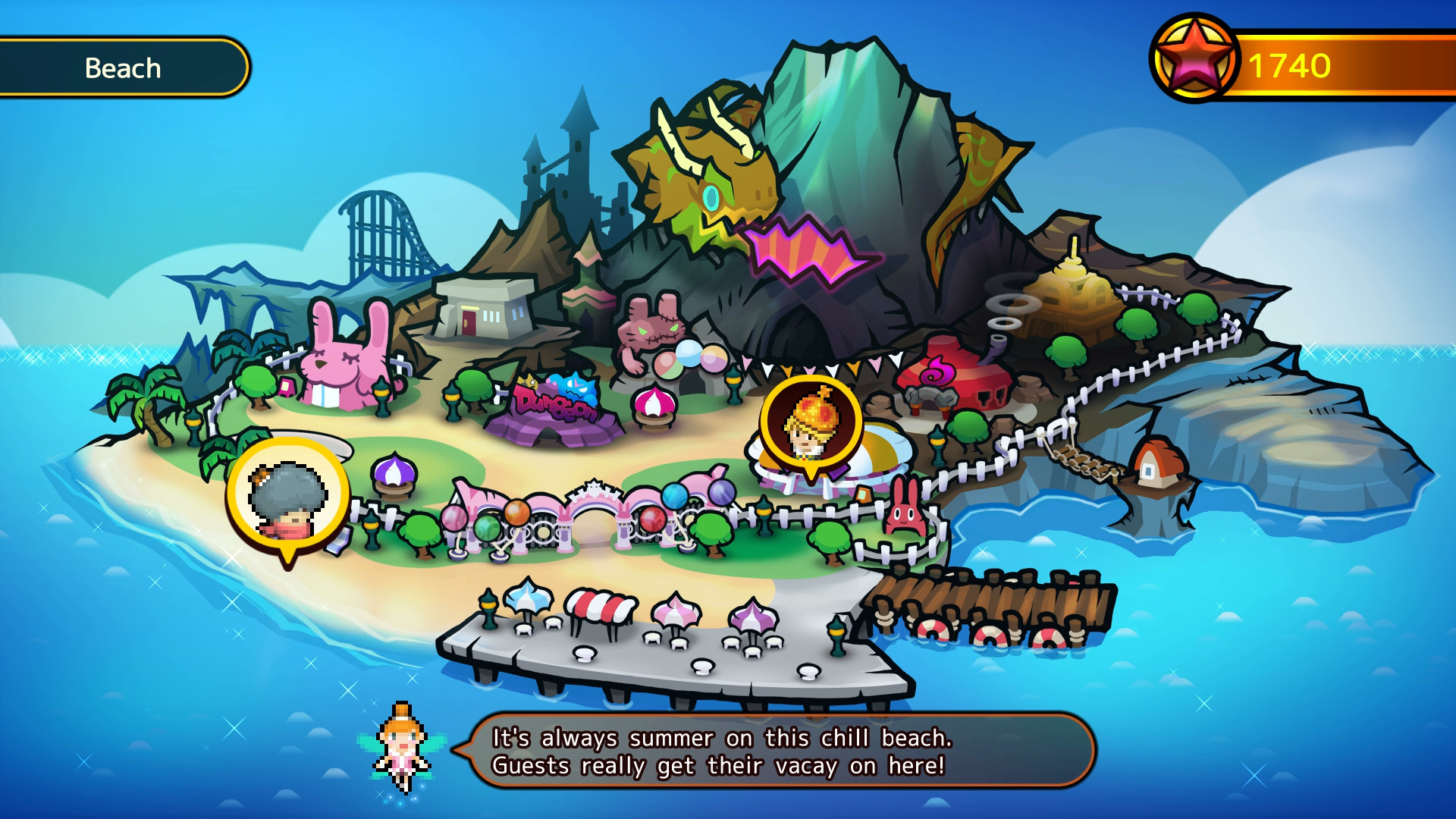
Credit: XSEED
Experience and research into the target demographics for XSEED’s games play a role in sculpting a title. Sometimes the developers have more liberty with localizing a title, as in the case of Heroland, and other times the decision to simply translate a title directly is the most appropriate course of action, as was the case with Corpse Party, which was already romanized and sold in Japan as Kopusu Pati. At other times, XSEED elected to keep a game’s Japanese title intact while affixing an English subtitle to it, like with the Senran Kagura series XSEED publishes in North America specifically for enthusiasts of Japanese culture.
One of the most famous examples of this is the series from which Persona spun off, Shin Megami Tensei, which directly translates to True Goddess Reincarnation. Gods and goddesses are thorny roses to pick, especially when they imply the existence of a “true” deity. That, along with the strength of the Shin Megami Tensei brand, might help explain why that series has only ever had English subtitles for its Western releases as opposed to full English titles, according to Christopher Holzworth, EGM alum and one of two editors who worked on SMTIV: Apocalypse.
“I wouldn’t call it quite a conservative culture, but if it ain’t broke no one noodles around,” he said.
The journey from Final to Apocalypse was molded by a few specific mandates handed down by Atlus’ higher-ups in Japan. The Japanese marketing department mashed up the symbols for both peace and anarchy for use in the game’s title. They insisted that the U.S. branch use that symbol for the game’s localized version, which ultimately meant having to select a subtitle name that included the letter A. “So that basically nuked the overwhelming majority of the options that we sent,” Holzworth said.
It also had to be short and punchy, especially because Shin Megami Tensei is already racing towards a mouthful. The avoidance of religious overtones also meant that one title suggestion, Holy War, was shot down almost immediately.
End War was floated and seemed to tick every box. It wasn’t overly long, it was at least somewhat relevant to the game’s themes, it preserved a little bit of the essence of the original subtitle, and it had an A in it. The rub was that Atlus’ legal department thought it was too similar to the Ubisoft-produced Tom Clancy’s EndWar, and rejected the name. The difference may seem small, but it represents a legal maze of bramble that Atlus was unwilling to wade into. Under the Dome was another contender even though it lacked an A, but it was rejected for a similar reason to End War: its association with the Stephen King novel of the same name. “No one’s gonna go near Stephen King either,” Holzworth said.
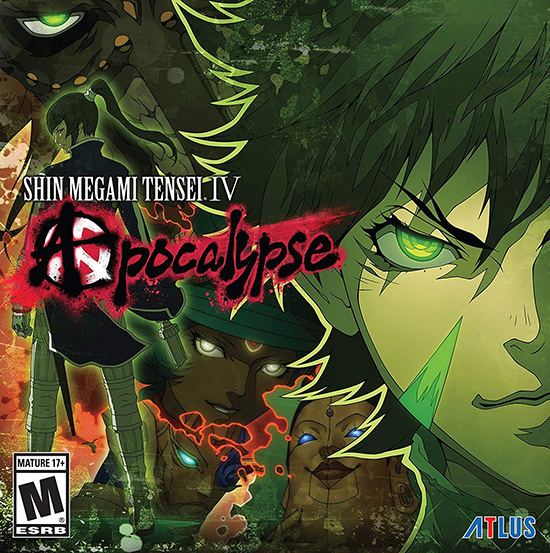
Credit: Atlus
The process of generating ideas, submitting suggestions for approval, and the latency between responses added an extra layer of laboriousness to the process. Holzworth said that this process lasted weeks. It would sometimes take a full week just to draft up a list of names, send them to marketing, have marketing go back and forth with the executives in Japan, and then to receive approval or (more often) rejections. Communication with Atlus Japan was a major bottleneck.
Apocalypse was not a first choice. Each SMT has something to do with an apocalypse, so the localization team tried to find a name that would fit within the parameters they were given while also being more relevant to the narrative and having some sense of literary bounce and elegance. With each new round of rejections, though, came an ever-constricting circle of options.
“You kind of really throw your hands up and shrug… So we kind of went with Apocalypse by virtue of extremely limited options,” Holzworth said.
Commercial video games represent enormous investments. The larger the game, the larger the responsibility because more resources have been poured into the project and the publishers are relying on the game selling well to recoup costs. As a result, the title bears a huge burden of having to attract and hold the attention of as many people as possible before they even know what the game is that they’re looking at. It has to compel and invite them to learn more. What Holzworth describes might seem frustrating, but it’s also understandable why so many different voices—writers, attorneys, producers, marketers, and more—all have a vested interest in what their games are called.
“It’s one part just throwing spaghetti at the wall. There is certainly an art to it, but I think that art is very much like an iceberg situation,” Holzworth said. “What people don’t see under the surface is how many different forces are coming together to name something.”

David O’Keefe is a freelance journalist and photographer who smiles at the very mention of leopard geckos or Warcraft 3. He studied journalism at The College of New Jersey in his home city of Trenton and was taught photography by the Pulitzer-winning John Filo. As a result of his struggles with depression and social anxiety disorder, David has also become a vocal mental health advocate. He covers games, esports, tech, and entertainment. Follow him on Twitter @DaveScribbles and peruse his portfolio on Muck Rack.